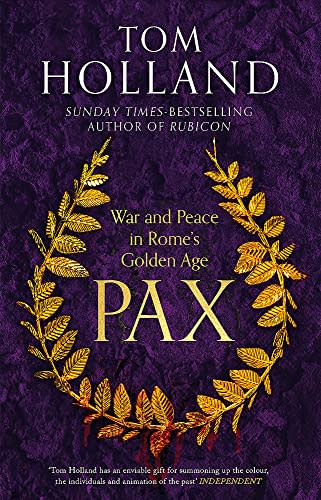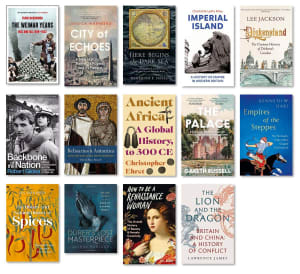Do you - can you? - think like a Roman?
Here’s a test. What would you do in this situation?
Imagine you are the pie-loving commander of a powerful army of Roman legions stationed on the Rhine. Your boss the emperor Nero has been mourning his beloved wife who he accidentally kicked to death. To help him overcome his grief his minions have found an unfortunate young boy who looks surprisingly like the late spouse. He is shipped over to Rome.
The story takes a lurch left-field at this point. Nero is impressed but thinks he can do better. The boy is dressed in his wife’s clothes, make-up applied and the finest tutors are hired to school him in womanly arts. His penis and testicles are surgically removed. A plan to insert a functional womb has to be abandoned because medical science is not yet sufficiently advanced. The boy now girl is given the name Sporus by a doting Nero, which translates into English as spunk.1
One year after Sporus and Nero were married, a rebellion is launched against Nero. Giving up all hope Nero flees out of Rome and commits suicide in one of his nearby villas, Sporus at his side.
Sporus is claimed as plunder by the senior military officer in Rome, the captain of the Praetorian Guard. Two more emperors come and go in a matter of months, Galba and Otho. Emperor Otho has taken a shine to Sporus too, and no wonder. In a bizarre twist Otho was the original husband of Nero’s look-a-like wife and had to give her up when Nero decided he wanted her for himself.
Bear with me we are coming to the test!
Having been forced into a mutiny by your rebellious legionaries on the Rhine, you as their commander (who would much rather stay at home eating pies) have marched from the German frontier into Italy, defeated Otho’s troops, and are now emperor. Well done! But here’s the question: what will you do with young Sporus?
Will you:
a) Set him free and let him go home, he has suffered enough.
b) Install him as your own concubine, you are captivated by his good looks and charm.
c) Stage a public show, in which Sporus is forced to play the part of a goddess in a Roman myth. You instruct gladiators, dressed up as the god Pluto and following the mythic storyline, to rape and then kill Sporus in the arena.
If you chose (c) congratulations! You can indeed think like an (elite) Roman.2 If you chose (a) or (b) you may feel marginally better to know that Sporus took his own life before the spectacle took place.
The strong and the weak
The point of this disturbing tale, told by Tom Holland in his latest book Pax: War and Peace in Rome’s Golden Age is to help us penetrate into the mindset of the Romans that to us can appear so strange.3
The key to understanding this particular story, Holland tells us, is that for the Romans, the most important identity was not man or woman but one of power. What mattered was the fact - and act - of domination. In the case of Sporus it was considered less important that he was transformed from a boy into a woman, and more important that he was an underling who remained on the receiving end of the Emperor’s affections. Whether those affections were welcome or not was beyond the point: the strong do what they want and the weak (if they were not Roman citizens) just have to take it.
She [Sporus] was a symbol not just of imperial power, but of the daring required to reach after imperial power. Well might those who had moulded her, fashioning an empress out of a boy, think nothing beyond them.
Tom Holland, Pax
What’s in the book?
Pax provides us with a grand tour of the Roman empire from the death of Nero in 68 CE to the death of Hadrian 70 years later in 138 AD.
In some ways it is a pretty “straight” history, telling us which emperor did what, when. But Holland also spices things up with plenty of diversions and digressions along the way - such as the story of Sporus - weaving them into the narrative.
This is because Holland wants us to think like a Roman, or at least appreciate the outlines of the Roman mindset. In my case I think he succeeded: although I was shocked by the case of Sporus early in the book, by the end of it when Holland comments:
Trajan, model of discipline and modesty that he was, had no patience with luxury. His only vices were those appropriate to an honest soldier: alcohol and boys.
Tom Holland, Pax
...I didn’t even raise an eyebrow.
As well as travelling through time:
- Death of Nero
- Year of the four emperors: martinet Galba, playboy Otho, pie-loving Vitellius, and then...
- Vespasian and his son Titus
- Domitian
- Trajan (and Nerva)
- Hadrian
...we are also taken on an empire tour, with stop-offs at:
- 🏛️ Rome
- 🐄 the German frontier
- 🕍 Judaea
- 🌋 Pompeii (timed for the eruption of Vesuvius)
- 🧙♂️ Britain
- 🦃 Bithynia and Pontus (nowadays West Turkey)
- 🏖️ Mesopotamia
- 🫒 Greece
Each location is vividly described and helps us to appreciate the vast expanse of the Roman world - and just how mobile people were within it.
Sub-optimus Princeps
Even if you know the history of the period covered by this book - perhaps like me you enjoyed the excellent Emperors of Rome podcast during lockdown - it is still an interesting and thought provoking read. This is because Holland is happy to veer off the beaten track with an alternative view of what might be a familiar topic.
For example Trajan is traditionally portrayed as Optimus Princeps, the best of emperors. But in Pax, Holland tells us Trajan came within a whisker of breaking the empire with his harebrained schemes to take over the universe - irresponsibly squandering the treasure chest built up by his predecessor and triggering rebellions across the Roman world.
The pen is mightier than the sword
And the typical view of Domitian (the aforementioned predecessor) is of a brutal tyrant who liked to relax by stabbing flies with his pen. But instead, Holland says, we should actually see him as a conscientious god-fearing micro-manager who put the empire back on its feet, and was only undone by an unfortunate tendency to murder first, ask questions afterwards.4
I suspect these alternative views are not totally new, what is under the sun? But I had not seen them aired before and found them persuasive and thought provoking.
Downsides
I have a couple of caveats to my paeon of praise for Pax:
I described this book as a grand tour of the Roman empire. This is true but it is a tour for which you have only the barest itinerary in advance. So when Holland launches into one of his asides about Pliny’s encyclopaedia, or price controls on eunuchs you just have to trust him that this is a place worth getting off the bus for. I found this more of a problem at the beginning of the book when I occasionally got impatient with yet another enforced stop to take photos.5
By about half way through though, I felt tour guide Holland had earned my trust and wasn’t going to lead me into any gift shops masquerading as tourist attractions. So perhaps this caveat is more of an exhortation to the less patient reader to stick with it and keep going.
The second caveat is stylistic. Holland’s writing is fluid and pacy but - paradoxically - it can also be florid and unnecessarily convoluted.6 Again as per above, the whole journey is rewarding and worthwhile but a few of the by-roads are not as smooth as they might be.
Ultimately though the sheer relish and exuberance with which Holland marches us through the history compensates for these wrinkles and makes Pax a delight to read.
Conclusion
This is an excellent book, awarded a 5 star triumph: with an impressive procession of defeated enemies, stormed cities, castrated boys and exploded volcanoes.
You may finish it still thinking that transforming a young lad into the image of your dead wife is an unacceptable thing to do. But you will certainly appreciate that standards of good and bad behaviour can alter dramatically over time - that the Romans thought very differently to us.
The name that he was born with has been forgotten, so we only know him as Sporus. ↩︎
I would accept (b) as well if challenged. ↩︎
Whether or not the Sporus tale is wholly accurate is not something that Holland delves into - throughout the book he concentrates on telling the story rather than getting bogged down in an analysis of the sources. If the objective is to illuminate the Roman mindset I guess it matters less how true the story is and matters more that the story was told at all. Which isn’t to say that the stories are necessarily untrue of course... ↩︎
I enjoyed this quote attributed to Domitian by Suetonis: “How wretched is the lot of a princeps. For the only time that people believe him when he reports the uncovering of a conspiracy is if he ends up actually murdered.” ↩︎
The chapters headings don’t help with this as of the sort that tend to make sense only after you have finished reading the book, eg ‘The Sad and Infernal Gods’ or ‘Sleeping Giants’. The list of maps is, perhaps appropriately, a much more helpful guide to the route. ↩︎
At the risk of sounding like an English teacher marking homework, this is an example of a sentence I had to read a few times: “But these, by the classes who, in provinces across the empire, flourished under Roman rule, and who prosperity was dependent on its continuance, might easily be ignored”. 😥 ↩︎
Book details
(back to top)- Title -
Pax : War and Peace in Rome's Golden Age
- Author -
Tom Holland
- Publication date -
July 2023
- Publisher -
Abacus
- Pages -
448
- ISBN 13 -
9781408706985
- Podcast episode -
- Podcast episode -
- Amazon UK -
- Amazon US -



